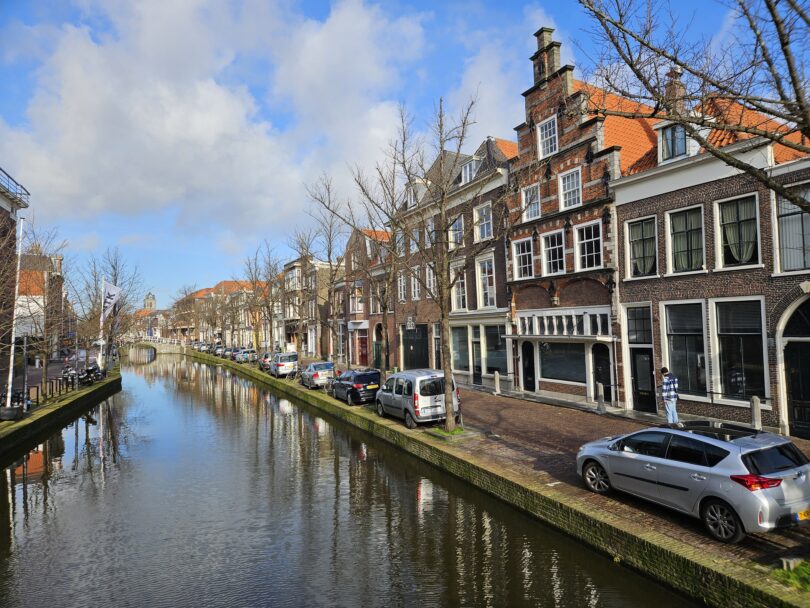Nestled between Rotterdam and The Hague, Delft is one of the Netherlands’ most enchanting and picturesque cities—a place where history, art, and innovation blend seamlessly along tranquil canals. Often described as a smaller, more peaceful version of Amsterdam, Delft charms visitors with its cobbled streets, gabled houses, and tree-lined waterways that invite you to slow down and explore.
Founded in the 11th century and granted city rights in 1246, Delft blossomed into a thriving center of trade, art, and craftsmanship during the Dutch Golden Age. This is the city that inspired Johannes Vermeer, whose quiet, luminous paintings captured Delft’s serene beauty, and where Antoni van Leeuwenhoek, the “Father of Microbiology,” made groundbreaking scientific discoveries. Delft also holds a special place in Dutch history as the final resting place of William of Orange, the founding father of the Netherlands, whose tomb lies in the grand Nieuwe Kerk (New Church) on the bustling Markt Square—one of the largest and most beautiful town squares in the country.
Wandering through Delft feels like stepping into a living painting. The Oude Kerk (Old Church) leans charmingly over a canal, the City Hall showcases Renaissance splendor, and every corner reveals a cozy café or boutique selling the city’s most famous creation—Delft Blue pottery, the delicate blue-and-white ceramics that have adorned homes around the world since the 17th century.
Yet Delft isn’t just a city of the past—it’s a thriving hub of innovation. The Delft University of Technology (TU Delft) is one of Europe’s leading institutions in engineering, design, and sustainability, bringing a vibrant, youthful energy to the city. This blend of old-world charm and cutting-edge science gives Delft its unique character: timeless yet forward-looking.
Whether you’re sipping coffee beside a canal, visiting Vermeer’s works at the Vermeer Centrum Delft, or cycling through green parks and quiet streets, Delft offers a perfect snapshot of Dutch life—relaxed, cultured, and effortlessly beautiful. With easy train connections from both Rotterdam and The Hague, it’s an ideal destination for travelers who want to experience authentic Dutch charm without the crowds.
Interesting Websites for Things To Do in Delft:
https://www.wanderlustingk.com/travel-blog/things-to-do-in-delft
https://www.indelft.nl/en










